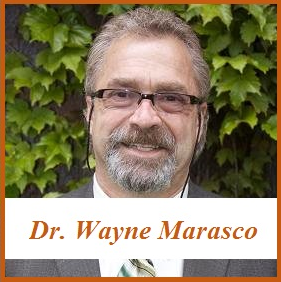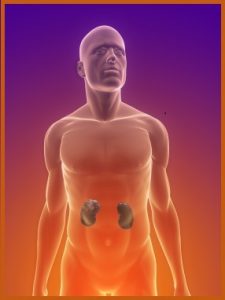6 Facts You Need to Know About Kidney Cancer
March is National Kidney Cancer Awareness Month and, as this disease continues affecting the lives of so many people every year, it’s important to understand it.
Background:
- Kidney cancer is among the 10 most common cancers in both men and women.
- In the United States, an estimated 63,990 people will be diagnosed with kidney cancer this year.
- While the number of people diagnosed with kidney cancer has been slowly rising since the 1990’s, the death rate has been slowly declining.
- The overall (all stages included) five-year survival rate for people with kidney cancer is 74%.[i]
Here’s a list of six facts you need to know about kidney cancer. And make sure you read about related work by NFCR-funded scientist Dr. Wayne Marasco.
1. Men are twice as likely to develop kidney cancer.
An estimated 40,610 men and 23,380 women in the U.S. are expected to be diagnosed with kidney cancer this year.[ii] That means nearly twice as many men will be diagnosed! Yet the exact reasons for this difference are unknown. Possible factors include higher levels of chemical exposure and higher smoking rates. Men are more likely to be smokers and are more likely to be exposed to cancer-causing chemicals at work.[iii]
2. Kidney cancer most often occurs in people over age 55.
The risk for developing kidney cancer increases with age and the average age of diagnosis is 64 years old. Although kidney cancer is very uncommon in people younger than age 45, there is a type of kidney cancer, known as Wilms tumors, that tends to affect children. About 5% of all cancers in children are Wilms tumors.[iv]
3. Smoking and other factors increase risk.
Smoking has been linked with as many as one third of all kidney cancer cases.
And if you are a current or former smoker, your risk of developing kidney cancer is twice as high as someone who never smoked. Quitting reduces your risk, even if you’ve smoked for years.
Other major risk factors include obesity, high blood pressure and exposure to chemicals like asbestos and cadmium. In addition, people who receive long-term dialysis to treat kidney failure have a higher risk of developing kidney cancer.
4. Pay close attention to your family history.
Your family history may predispose you to kidney cancer. If you have a first-degree relative (mother, father, brother, sister or child) who was diagnosed with kidney cancer, you are at increased risk of developing the disease. This risk is highest for brothers or sisters of those with the cancer.[vi]
Also, people born with certain inherited syndromes may have an increased risk of kidney cancer, including those who have von Hippel-Lindau disease, Birt-Hogg-Dube syndrome, tuberous sclerosis and familial papillary renal cell carcinoma.
5. There are warning signs, but not EARLY warning signs.

Possible warning signs or symptoms may include: blood in your urine (this may be painless and appear one day and not the next); back pain just below the ribs that doesn’t go away and was not caused by injury; weight loss; fatigue; or intermittent fever. If you notice any of these symptoms, see your doctor right away.
6. Cutting-edge research is helping us attack kidney cancer head on.

For cancer, as well as HIV/AIDS and other infectious diseases, one possible treatment involves the use of human monoclonal antibodies (Mabs) – which are proteins that scientists develop to bind to only one substance. For cancer treatments, Mabs bind only to cancer cells and produce immunological responses against the cancer cells. There is great promise with Mabs because their tumor-fighting effects would be less harmful to normal cells than that of traditional cancer treatments.
In an effort to greatly expand the use of Mabs in the treatment of cancer, Dr. Wayne Marasco— a world-renowned antibody engineering expert who works on infectious diseases and cancer immunotherapies — and NFCR joined forces to create the NFCR Center for Therapeutic Antibody Engineering. At the Center, Dr. Marasco collaborates with accomplished global cancer investigators in a joint effort to uncover new Mabs using his laboratory’s huge human antibody library.
Most recently, his team at the NFCR Center developed a combination immunotherapy treatment that holds promise for treating metastatic kidney cancer more effectively. The immunotherapy they have engineered includes not only the CAIX antibody that detects and binds to CAIX growth-promoting proteins on cancerous kidney cells, but also unblocks T cells to enable more rigorous attacks against cancer. Moreover, this double treatment approach could be adapted to treat advanced colon, breast, brain and other difficult-to-treat solid cancers using different antibodies.
[i]https://www.cancer.org/cancer/kidney-cancer/about/key-statistics.html
[ii] https://www.cancer.org/cancer/kidney-cancer/about/key-statistics.html
[iii] https://www.cancer.org/cancer/kidney-cancer/causes-risks-prevention/risk-factors.html
[iv] https://www.cancer.org/cancer/wilms-tumor/about/key-statistics.html
[v]
[vi] https://www.cancer.org/cancer/kidney-cancer/causes-risks-prevention/risk-factors.html














